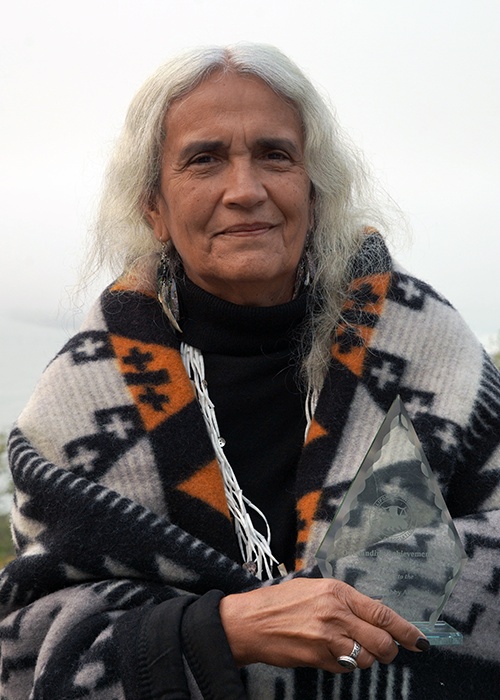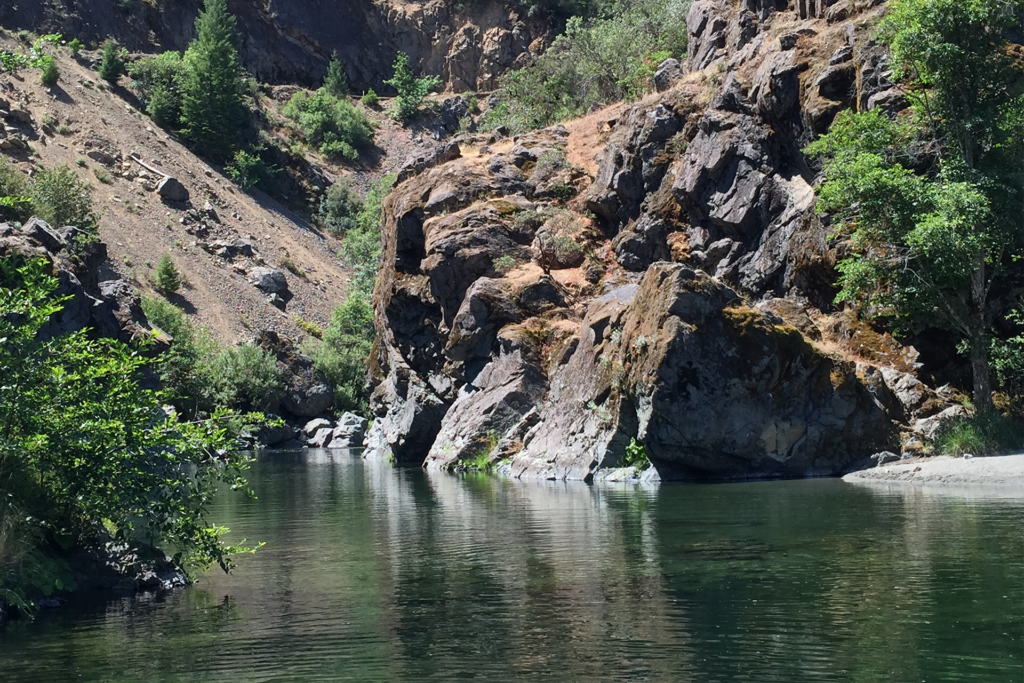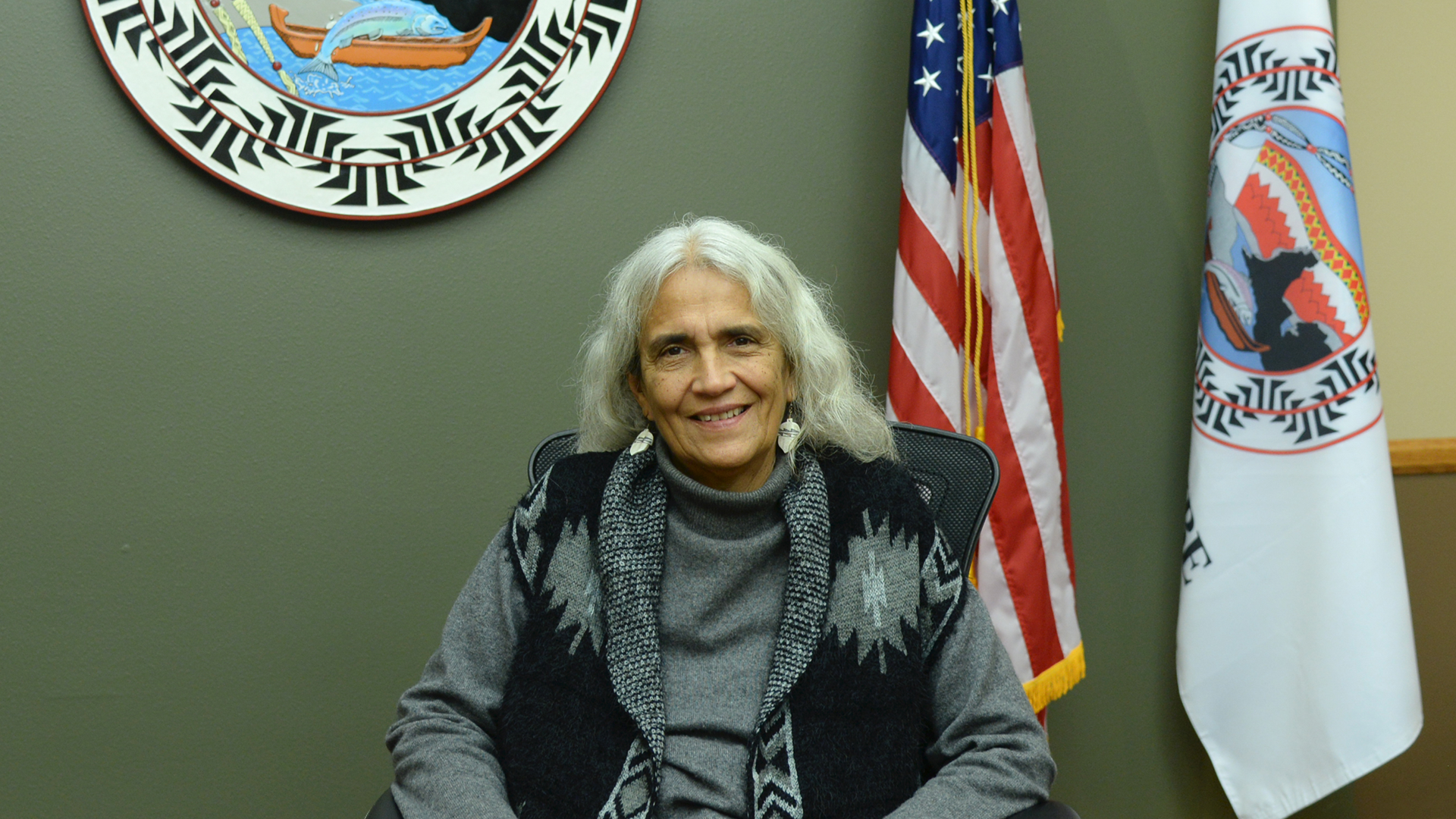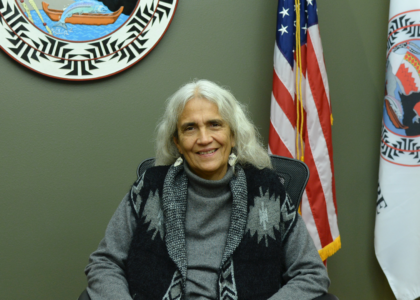Tribal Nation
Yurok
Justice

“The Yurok survived because we ran and hid”, states Abby Abinanti. The California Gold Rush took a heavy toll. An estimated 75% of Yurok people died from massacres and disease. Their ancestral territory that supported over 50 villages and encompassed 7.5% of the California coastline was carved to a sliver along the banks of the Klamath River. Today, the Yurok Tribe is the largest surviving tribe in California and while their homeland was diminished, the Yurok people remain on the land and the river that they have inhabited since time immemorial.
In 2007, Abby took justice by the hand and brought it home. Abby has served the Yurok Tribe as Chief Judge for fourteen years with the “goal of creating a culturally relevant justice system.” As a college student, she never intended to pursue law, but sometimes destiny has its own pursuit and Abby became the first American Indian woman to be a member of the California State Bar. After working for tribal clients in Northern California and the San Francisco Superior Court, she brought her expertise home. She set about the task of fixing a broken system for people navigating the legacies of invasion and all that came with it.
With collaboration and support from colleagues and the Tribe, Abby has worked to build a judicial system based on the Yurok cultural value system of “responsibility to and responsibility for.” The system has expanded into environmental, fishing, family law, civil law, and protective orders. Their most expansive judicial program is the Wellness Court that includes family, adult, and juvenile wellness courts. Through all of these efforts, the Yurok people are healing by reclaiming who they are as a people.
Abby’s work has provided a life pathway of world renewal. She takes her place and responsibility in community like her ancestors. She understands being a good relative extends beyond her human community to the River, the salmon, and everything on the earth. As the collapse of the wild salmon in the Klamath River exemplifies for the world, the challenges are deeply intersectional. Of her homeland, Abby says, “It defines who I am. I am of this place.”
In another manner of bringing justice home, Abby created a family cemetery on her property. Her mother was buried off the reservation. In a final gesture as a loving daughter, Abby brought her mother home.




